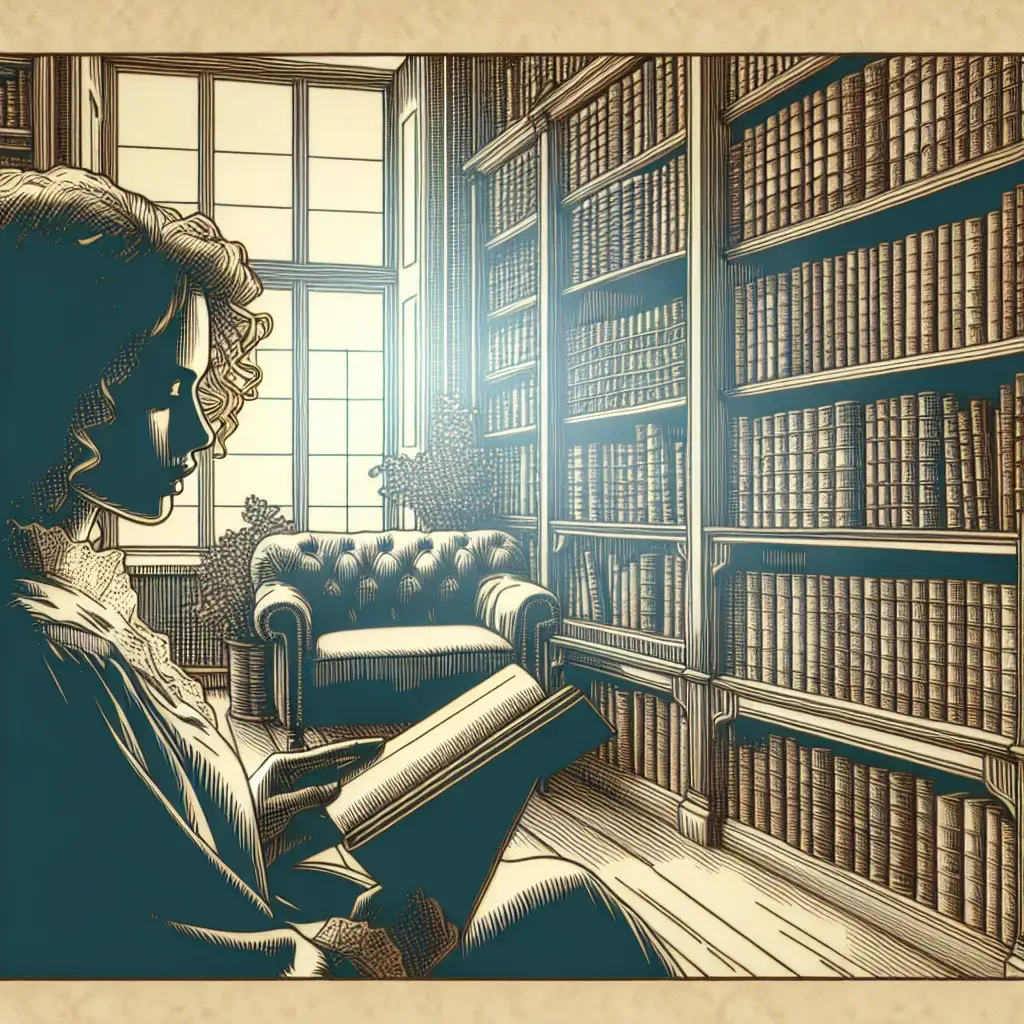Key Points
- Chemical breakdown of compounds in old books releases a distinctive and nostalgic aroma that triggers strong emotions.
- The enjoyment of the smell of old books goes beyond the physical reaction, tapping into psychological benefits like nostalgia and mood enhancement.
- Bibliosmia, the experience of smelling books, adds depth to the reading experience by revealing aspects of the book's history and production.
Have you ever walked into a library and been greeted by a slightly musty, but somehow delightful scent? That unique smell that seems to whisper stories of wisdom, adventure, and times gone by? Many people find the aroma of old books comforting and even invigorating. But what exactly causes this distinctive odor, and why does it evoke such strong feelings of nostalgia and pleasure in so many of us?
The Science Behind the Scent
The characteristic smell of old books is a result of the chemical breakdown of compounds found within the paper materials over time. As books age, the cellulose and lignin in the paper begin to degrade, releasing various volatile organic compounds (VOCs) into the air.
Researchers have identified that these VOCs include hints of grassy notes with a touch of vanilla, resulting from the breakdown of lignin, similar to the scent of vanilla that is derived naturally from the lignin compounds in wood. There’s also a slightly almond-like aroma due to benzaldehyde and an earthy scent coming from the decomposition of other organic compounds.
A Trigger for Nostalgia
The pleasure derived from the smell of old books goes beyond the physical reaction to the chemicals released. It also has a significant psychological component. For many, the scent of aged paper triggers a sense of nostalgia. Memories of old libraries, browsing through second-hand bookstores, or reading at a grandparent’s house can flood back intensely upon smelling an old book.
Nostalgia, a sentimental or wistful affection for the past, has been shown to have numerous psychological benefits. It can increase a sense of connectedness to others, boost mood, and even provide temporary relief from discomfort by recalling more contented times.
A Marker of Antiquity
The scent of old books is often seen as a marker of their resilience and a testament to their journey through time. It tells a story about the book’s origins, the hands it has passed through, and the eras it has survived. This aspect adds an experiential richness to handling old books that newer books simply can’t match. For collectors and enthusiasts, this aroma enhances the book’s value—making it not just a vessel of words but a relic of history.
The Bibliosmia Experience
Some bibliophiles describe the act of smelling books as ‘bibliosmia,’ a term that highlights the intense sensory experience associated with sniffing pages. This experience can be akin to wine tasting, where nuances in the scent can reveal not just the chemical makeup of the paper but also hints about where and how the book was stored, the quality of the paper, and the printing techniques used in its production.
Why This Makes Old Books Irresistible
For readers and collectors alike, part of the allure of old books lies in their ability to engage more than just the visual senses. The tactile experience of turning delicate, time-softened pages combined with the distinctive smell adds depth to the reading experience. It’s almost as if, through their scent, old books are sharing their own stories in addition to those printed on their pages.
Conclusion
The enjoyment of the smell of old books is a multi-faceted phenomenon, deeply rooted in both chemistry and emotion. It reflects not only the physical aging process of the books but also the personal histories and memories that individuals connect with them. Next time you pick up an old book and breathe in its unique scent, remember that you’re experiencing a bit of history, nostalgia, and the sheer joy of reading all rolled into one.
It’s fascinating to see how our senses can play such a significant role in our experiences and interactions with seemingly mundane objects. This not only enriches our understanding of human perception but also highlights the ways in which everyday items can carry profound personal and historical significance.
If you’re intrigued by such stories that blend science with daily life, you might find other articles here on thinkpotion.com which delve into similar topics. Who knew that even our noses could lead us on such thrilling journeys of discovery?

